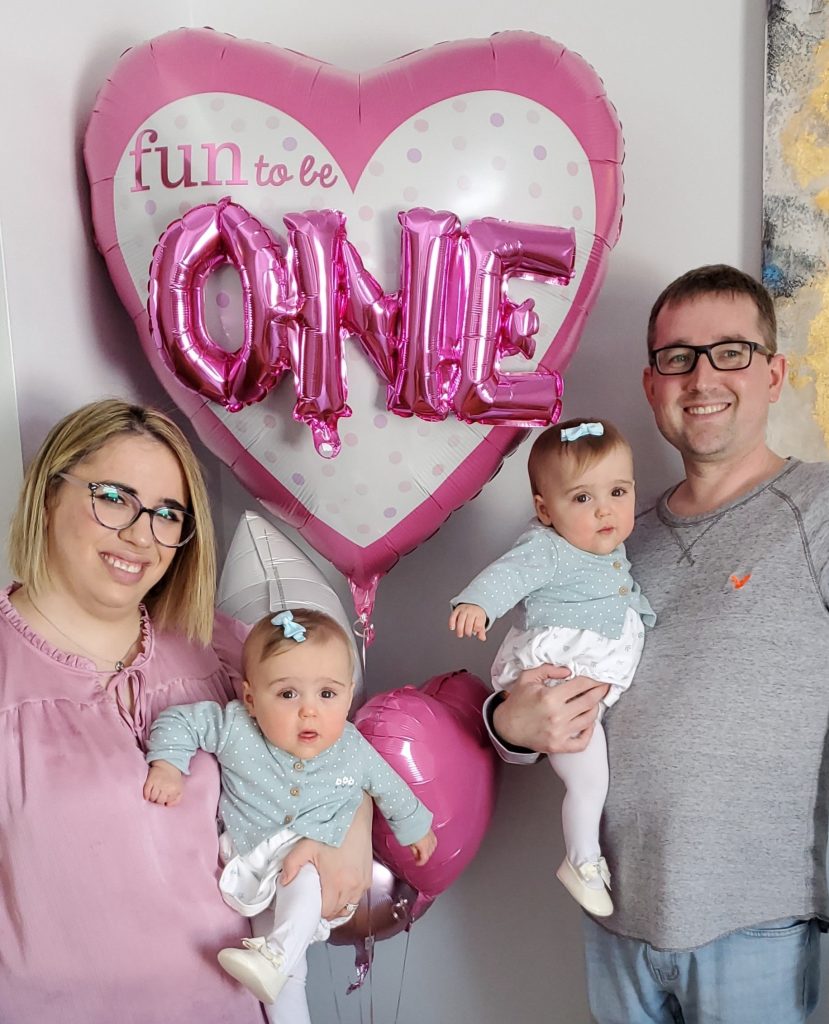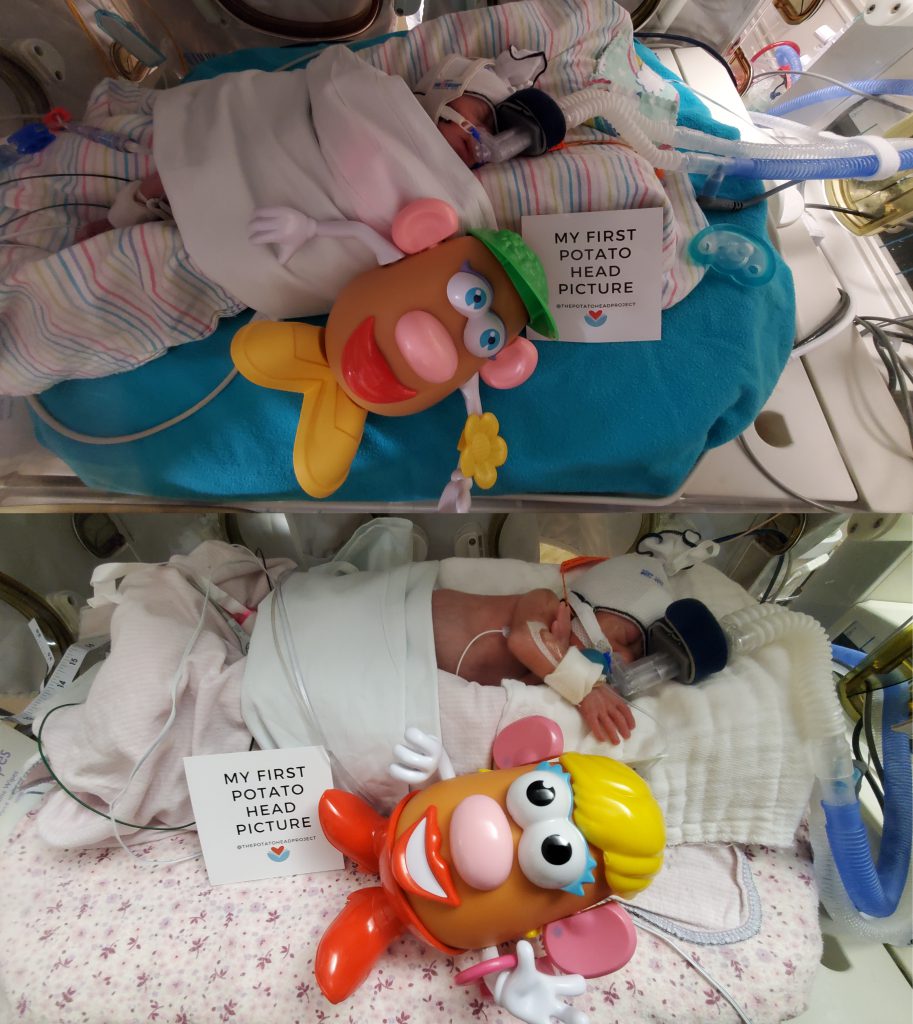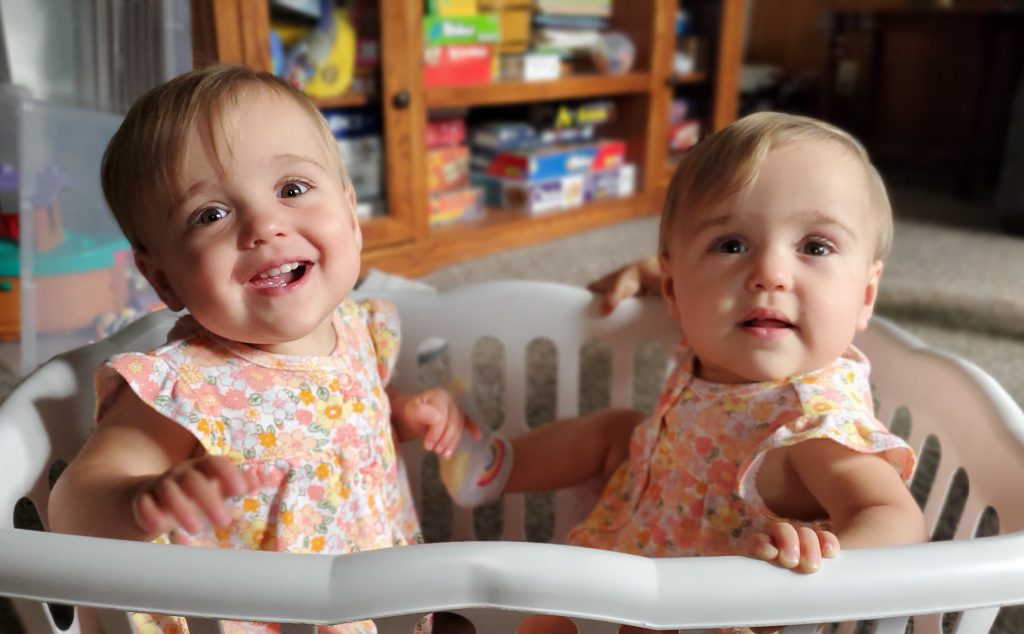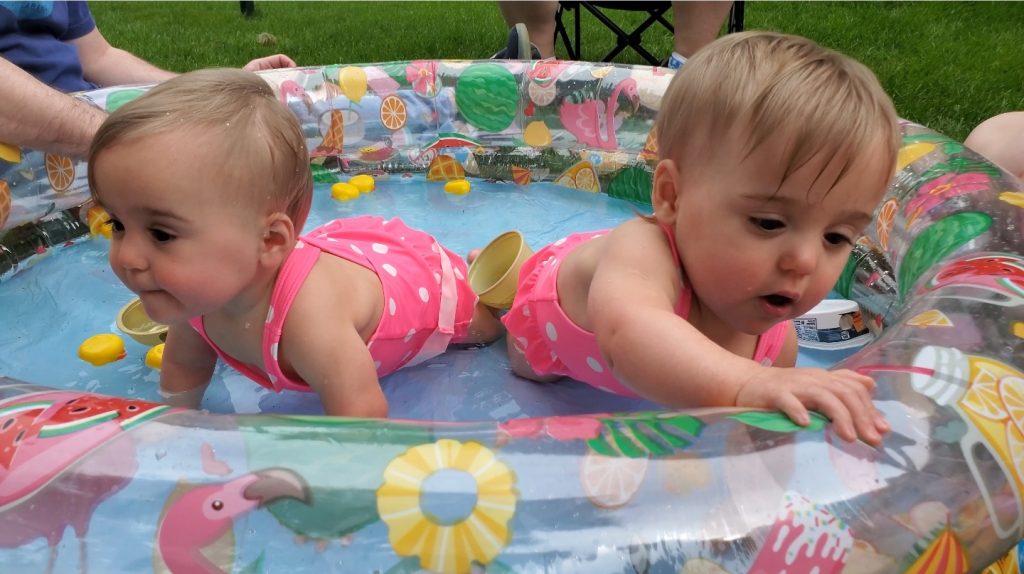Health Professional News, Mighty Blog
Mara and Steven love taking their identical twin girls Madison and Peyton on walks around the neighborhood and playing with them in their blow-up pool. They cherish these moments because of what their girls went through in their first few months of life. The twins were born three months premature in March 2022. This wasn’t the only hurdle they had to overcome – they were also born with the same heart defect.
Birth and diagnosis
Because Madison and Peyton were born so early, they needed the expert care and experience provided by Children’s Minnesota’s Level IV neonatal intensive care unit (NICU) in Minneapolis. The care team soon realized both girls were born with a patent ductus arteriosus’ (PDA). The PDA is an extra blood vessel found in babies before birth and just after birth that connects two major arteries — the aorta and the pulmonary artery.
If the PDA doesn’t close, it lets oxygen-rich blood from the aorta mix with oxygen-poor blood in the pulmonary artery. As a result, too much blood flows into the lungs, which puts a strain on the heart and increases blood pressure in the pulmonary arteries.

“I could tell that both of them were struggling with their breathing. That was scary,” Mara said.

In most babies who have an otherwise normal heart, the PDA will shrink and close on its own in the first few days of life. A PDA is more likely to stay open in premature babies, like Madison and Peyton, who both weighed less than two pounds each at birth.
Closing a PDA
The first treatment option to try and close a PDA is oral medication like acetaminophen or ibuprofen. However, medication only works about half of the time, which was the case for Madison and Peyton.
“Historically babies like Madison and Peyton would have to undergo an open-heart surgery which is extremely stressful on preterm babies with more risks for complications. It also takes an emotional toll on the family,” described Dr. Ryan Meinen, neonatologist at Children’s Minnesota.
Less invasive option for the fragile babies
When the medication didn’t work for the twins, the care team, which included neonatology and cardiology, talked to Mara and Steven about the Amplatzer™ Piccolo Occluder – a minimally invasive treatment specifically designed to close PDA in premature infants.
The procedure is performed in the Children’s Minnesota cardiac catheterization lab, or “cath” lab, using a transcatheter (tube) to place the Piccolo to close the PDA. This meant Madison and Peyton wouldn’t need to go through the rigors and potential complications of open-heart surgery.
The Kid Experts® at Children’s Minnesota developed a standard guideline and protocol for preterm babies requiring transcatheter closure of their PDA, meaning Madison and Peyton were in the best hands possible. The protocol for PDA closure with Piccolo includes every care team involved in the process from nurses, respiratory therapists, the catheterization lab, neonatologists, nurse practitioners and cardiac anesthesiologists.
“Given how fragile these patients are, and the fact that they have to be moved out of the NICU for the procedure, we developed a protocol to ensure everything goes as smoothly as possible,” said Dr. Meinen.
At four weeks old and weighing only about three pounds, the twins had their PDAs closed in the cath lab by Dr. Marko Vezmar, medical director interventional cardiology at Children’s Minnesota.
“Our cath lab is designed and dedicated to the unique needs of children and babies like Madison and Peyton, allowing them to get better and go home sooner,” said Dr. Vezmar.
Mara noticed a difference almost immediately. “After a few days, Madison and Peyton started doing better, breathing better,” Mara remembers.

Going home
The girls still needed to grow more before Mara and Steven could bring them home. Madison spent four months in the NICU; Peyton five months. Having one baby at home and one still in the hospital was a learning experience for the parents.
“We learned how to get on a schedule and care for one child at home. But it was also hard to manage staying home and caring for Madison and making time to visit Peyton. When Peyton was discharged, we were so happy to have both of them home,” Mara said.
Today, Madison and Peyton are like many other growing babies – hitting milestones like crawling and pulling themselves up to stand. They’ve come a long way since being born prematurely.
“We didn’t know what to expect with babies that premature. I was pretty scared. There were a lot of ups and downs. But we had trust in the doctors, nurses and staff. We’re thankful for everything they’ve done, Madison and Peyton might not be here without them,” describes Mara.
